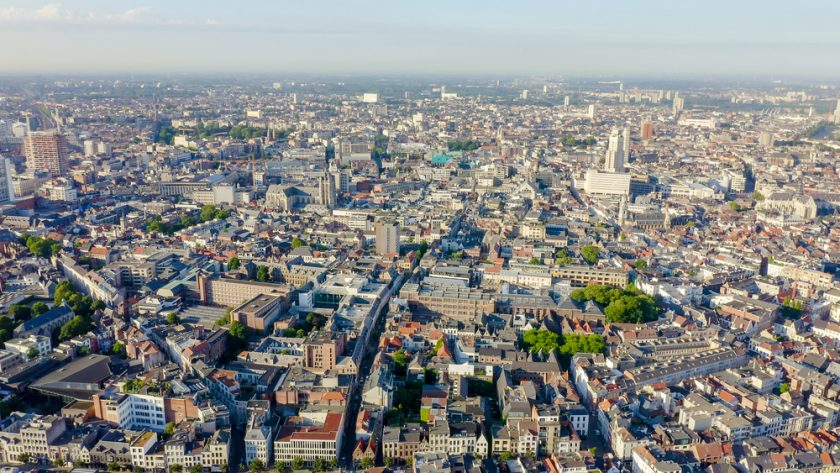Working closely with industry partners, Orange Belgium is implementing 5G technology to cover most of the country by 2025. The telecom operator is supporting the implementation of several government funded 5G-standalone technology use cases, including drone applications.
For example, SkyeBase was established in 2020 with the aim of carrying out faster, more efficient and better inspections of industrial sites, tank terminals, container terminals and infrastructure thanks to the use of drones for robotic inspections. Although the Antwerp company automates its drone and robotic inspections, the process still involves many manual tasks. For instance, an operator flies a drone around a silo to take pictures. When the drone lands, the inspector removes the SD card from the drone and checks the footage on a desktop or laptop. If the report turns out to be incomplete, the drone operator must return to the location. Through discussions with Orange Belgium, SkyeBase quickly realised that thanks to 5G standalone, a drone can forward footage instantly, says the company.
Next to working on a proof of concept of industrial drone inspections using 5G, another aim of the collaboration is to simplify remote communication with experts, Tom Daniëls, co-founder and CIO of SkyeBase, explains: “Experts cannot always be on site, but a live stream allows them to follow an inspection from a distance and share their knowledge in a secure manner. The 5G standalone network ensures a guaranteed bandwidth, which is crucial for connection reliability. We inspect critical infrastructure in the port and the petrochemical industry, amongst other locations. It is therefore crucial that the expert receives real-time footage, especially when an incident occurs.”
According to the company press release, Orange Belgium’s 5G equipped customer base has now reached more than 1 million clients (B2C + B2B), meaning that 1 in 3 Orange customers owns a 5G-compatible device. This includes devices such as smartphones, tablets, modem modules, connected objects, dongles, datacards, USB modems, etc. that are compatible with and can support 5G frequencies.
Orange Belgium aims to have 1,200 sites equipped with 5G by end of 2023 combining several frequencies to ensure the best possible experience at customers’ premises. In the coming months, more and more urbanized zones will start to see 5G coverage*. With the adaptation of emission norms also enabling the roll-out of 5G in Brussels, Orange Belgium is currently submitting its environmental permit applications to the Brussels Environment authorities. Once the permits are granted, the operator will be able to start deployment of 5G on its various antennas in the capital. 5G frequencies will initially be available at defined high-traffic locations, such as railway stations. The majority of 5G deployment in Brussels is scheduled for 2024, with some additional last rollouts in 2025.
For more information visit:
(Image: Antwerp by drone – Shutterstock)




